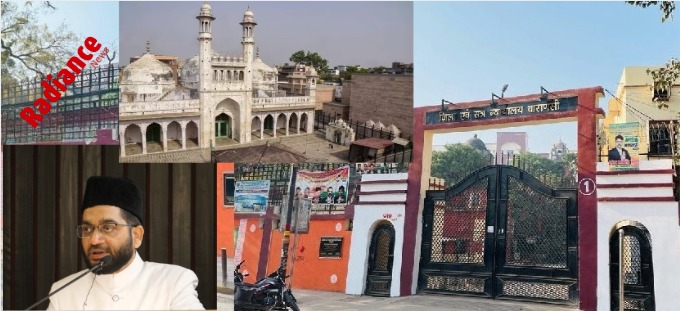New Delhi, Feb. 1: The President of Jamaat-e-Islami Hind (JIH), Syed Sadatullah Husaini has termed the Varanasi Court allowing Hindus to do pooja in the southern cellar of Gyanvapi Masjid as shocking and violative of the law.
In a statement to the media, Mr. Husaini said, “We are shocked and taken aback by the orders of the Varanasi Court to allow Hindus to do pooja in the southern cellar of Gyanvapi Masjid. By issuing this order, the Varanasi Court has violated the Places of Worship Act 1991 and virtually decided the title suit while the case is still pending in the Courts. As the cellar is part of the Masjid, pooja should not be allowed there.
“Jamaat-e-Islami Hind supports the decision of the Anjuman Intezamia Masajid Committee to challenge the order in the higher courts. The subsequent chain of events after the strange judgment of the Varanasi Court is disturbing and unprecedented. The brazen manner in which the premises and sanctity of the Gyanvapi Masjid were breached to set up pooja is disconcerting and ominous. We strongly oppose this action. It is the duty of the higher court to immediately reverse these acts of desperation to gain illegitimate ascendancy over the Masjid.”
The JIH President said, “We reiterate our demand to abide by the Places of Worship Act 1991. The Act provides a guarantee for the preservation of the religious character of places of public worship as they existed on August 15, 1947. The Government of India must come out emphatically in support of the Act and declare that they would adhere to it in letter and spirit. It has become extremely necessary for higher courts to act swiftly and reverse the lower court order keeping with the Places of Worship Act 1991. Let us be reminded of the words of the Supreme Court of India while deciding the title suit of the Babri Masjid. Extensively quoting The Places of Worship Act, the apex court described the Act as “intrinsically related to the obligations of a secular state.” It reflects the commitment of India to the equality of all religions. Above all, the Places of Worship Act is an affirmation of the solemn duty which was cast upon the State to preserve and protect the equality of all faiths as an essential constitutional value, a norm which has the status of being a basic feature of the Constitution…
“In preserving the character of places of public worship, Parliament has mandated in no uncertain terms that history and its wrongs shall not be used as instruments to oppress the present and the future.”




